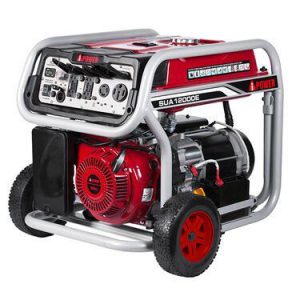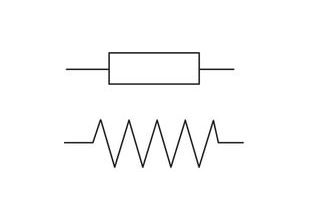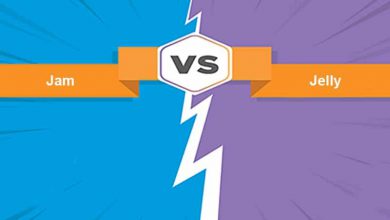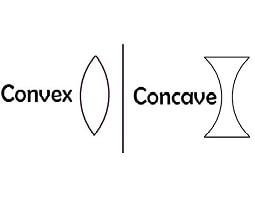What Is The Difference Between Generator And Alternator?
Here we elaborate that what is the difference between a generator and an alternator. which explains how they differ from each other in terms of structure, power, efficiency, etc. These differences between alternator and generator can help to clear any doubt about these two types of engines,
What is the alternator?

What is Generator?
 The generator is the device that converts mechanical energy into electrical energy; the current it produces can either be a direct current or an alternating current. The working mechanism of the generator is what separates it from the alternator. The rotor, which is formed of coils of wires, is fixed inside the magnetic field. The spinning of the windings of the wire spin generates electricity. The stationary magnet forms the magnetic field, and the mechanical energy of the engine is used to rotate the armature. As the generator produces uses voltage all the time and uses all the produced energy, they are ideally used for the production of electricity at a large scale. They also require a large space for running their operations. Therefore, they are seen at the dams, where there is more area (land), and excessive electricity production is the purpose. Unlike alternators, generators are polarized necessarily after the installation. The generator can even be used to charge dead batteries. The DC in the generator is produced after the rotor is attached to the commutator. It will be pertinent to mention here that the commutator is an integral part of DC production here, it is made up of a set of split rings, which connect the generator to the external circuit in such a manner that the current produced is always the direct current.
The generator is the device that converts mechanical energy into electrical energy; the current it produces can either be a direct current or an alternating current. The working mechanism of the generator is what separates it from the alternator. The rotor, which is formed of coils of wires, is fixed inside the magnetic field. The spinning of the windings of the wire spin generates electricity. The stationary magnet forms the magnetic field, and the mechanical energy of the engine is used to rotate the armature. As the generator produces uses voltage all the time and uses all the produced energy, they are ideally used for the production of electricity at a large scale. They also require a large space for running their operations. Therefore, they are seen at the dams, where there is more area (land), and excessive electricity production is the purpose. Unlike alternators, generators are polarized necessarily after the installation. The generator can even be used to charge dead batteries. The DC in the generator is produced after the rotor is attached to the commutator. It will be pertinent to mention here that the commutator is an integral part of DC production here, it is made up of a set of split rings, which connect the generator to the external circuit in such a manner that the current produced is always the direct current.
Alternator vs Generator
- In an alternator, the rotation of the magnetic field next to the stator causes a change in magnetic flux, which leads to the production of electricity. On the other hand, in the generator, the rotor is fixed in the magnetic field and the rotation of the windings generates the electricity.
- The generator produces a current that can be alternating current or direct current. On the contrary, the alternator only produces alternating current.
- Alternators are energy efficient since they only use the necessary energy, while generators use all the energy that is produced.
- Alternators cannot be used to charge a discharged battery; their use can even cause the battery to burn out. On the contrary, generators are even suitable for charging depleted batteries.
- There is no need for biasing of the alternators after installation while biasing is necessarily required after installation of the generator.
- The generator produces the voltages throughout the day continuously, while an alternator produces voltage only when it is needed.
Below, to aid your understanding, you will find a comparative table of the main differences between the alternator and generator
Comparison between alternator and generator
| Differences | Alternator | Generator |
|---|---|---|
| Definition | An alternator is a device that converts mechanical energy into AC electrical energy. | A generator is a mechanical device that converts mechanical energy into AC or DC electrical energy. |
| Output current | An alternator always induces an alternating current. | A generator can generate alternating or direct currents. |
| Energy efficiency | Alternators are very efficient. | Generators are considered less efficient. |
| Departure | Alternators have a higher output than generators. | Generators have a lower output compared to an alternator. |
| Conservation of energy | Alternators use only the required amount of energy and therefore save more energy. | Generators use all the energy that is produced and therefore conserve less energy. |
| Polarization after installation | No polarization is required in the case of alternators. | Generators must be polarized after installation. |
| Magnetic field | The magnetic field rotates inside the stator of an alternator. | In the case of a generator, the magnetic field is stationary or fixed where the armature winding rotates. |
| Armor movement | The armature of an alternator is stationary. | The armature of a generator is spinning. |
| Input supply | The alternator takes the input supply from the stator. | The generator takes the input supply from the rotor. |
| RPM range (rotation per minute) | Alternators have a wide RPM range. | The generators have a low RPM range. |
| Voltage generation | Alternators produce voltage only when necessary. | Generators produce voltage at all times. |
| Size | Alternators are generally smaller in size. | Generators are larger and require more space to fit. |
| Brush efficiency | Alternator brushes last longer. | Generator brushes last less time compared to an alternator. |
| Charging a dead battery | Alternators will never charge a dead battery | A generator can be used to charge a discharged battery. |
| Applications | Alternators are used primarily in the automotive industry as battery charging systems. | Generators are widely used to produce electricity on a large scale. |
These were the main differences between alternators and generators. These differences between alternators and generators are a bit detailed to help students get a complete idea about them. These detailed and advanced comparisons can help students fully delve into these respective topics.
The main difference between a generator and an alternator
The alternator and the generator are two types of machines that have the sole function of converting mechanical energy into electrical energy. The difference between the two devices is due to their mechanism and the type of electrical current that they produce a continuation. The generator is the device that converts mechanical energy into electrical energy (either electrical current or direct current). On the other hand, the alternator always produces alternating current. It will not be wrong to say that the alternator is the type of generator that converts mechanical energy into electrical energy in a way that produces alternating current.
In Short
| Alternator | Generator | |
| The type of current produced | AC | AC and DC. |
| Efficient energy | Yes. | Not. |
| Polarization after installation | Not. | Yes. |
| V ension | Only when necessary. | Every time. |
Both generators and alternators convert the mechanical energy of a car engine into electrical energy. Generators were used until 1970 when they were replaced by the alternator, which is what is used in cars today.
Electromagnetic induction
Alternators and generators work through the process of electromagnetic induction. This means that a change in a magnetic field if applied to a coil of conductive wire, will produce a current. Conversely, if a current is applied to the coil of the wire, it will produce a magnetic field.
Generators difference between generator and alternator
In automobiles, generators are connected by the pulley of a driving shaft. This pulley rotates a coil of wire, called the armature, within the magnetic field. The electricity created can be used to power the electronic parts of the car.
Alternators difference between generator and alternator
Alternators work in a similar way to generators. The main difference is that in the alternator the armature is static and the magnet rotates to produce the current.
DC and AC power
While generators produce direct current (DC), alternators produce alternating current (AC). This means that the power generated by an alternator must be converted to DC before it can be used.
The efficiency difference between the generator and alternator
The amount of current produced by a generator depends on how fast a motor runs. Alternators are easier to produce the maximum current since the strong armature is fixed and the light magnet is rotated. Alternators can provide power to most electronic parts in a car, even if the engine is idle, which is the main reason they are used in cars today.
Frequently asked questions about motors and alternators
How to reduce eddy current losses?
Eddy current losses can be reduced by laminating the core and insulating it from each other with the help of a paper or varnish.
What are the advantages of the stationary armature and rotating field systems?
The following are the advantages of the stationary armature and rotating field system:
- Stationary armature installation becomes easy.
- Peripheral speed can be easily achieved.
- The number of slip rings used is two.
What are the advantages of the stationary armature and rotating field in an AC generator?
The following are the three advantages of the stationary armature and rotating field in an AC generator:
- Collecting the output becomes easy from the stationary armature.
- A stationary armature can be used with higher voltage.
- When the armature is stationary, it is easy to supply low-voltage excitation to the rotor through the slip rings.
What are the advantages of paralleling alternator operations?
The following are the advantages of parallel operations of alternators:
- In the event of an alternator breakdown at the production site, parallel operations ensure that the connection is continuous for your consumers.
- This arrangement of alternators makes operation efficient. In addition, it is considered inexpensive.
- Installing more alternators in times of need becomes easy as the other alternators are arranged in parallel with each other.
- The arrangement helps to meet the requirement of a large alternator through multiple alternators and their arrangement in parallel operation.
What are the losses in a generator?
The following are the losses in a generator:
- Friction loss
- Loss of wind
- Rotor copper
- Stator copper
- Stator iron




